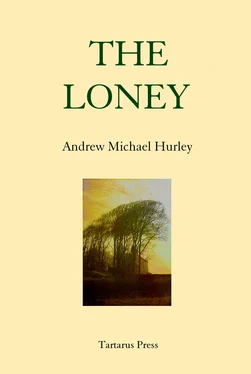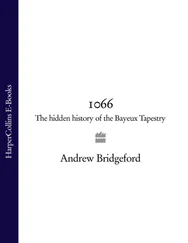But if it was God’s will that he should go to the sea, what was that apprehension that still dogged him as he started off across the marsh road? It was the feeling that he had disturbed something. The growing unease that the marshes were somehow aware of his presence. It was, he wrote, a dark and watchful place that seemed to have become adept at keeping grim secrets; secrets that were half heard in the whispered shibboleths that passed from one bank of dry reeds to the other.
It reminded him of an illustration of the Styx in the book of Greek history and legend he had had as a boy — his only book, fatter than the family Bible on the mantelpiece. And what stories he had found between the pasteboard covers. Perseus, Theseus, Icarus. What about Xerxes the Persian king, who had tried to bridge the Hellespont in order to crush the Greeks? Or Narcissus kneeling by his woodland pool? Or Charon, the pilot of Hades? He would have felt at home here, old Charon. Drifting through the marshes in his coracle.
He inspected his feelings again — that was, after all, why he had come — and found that he was not actually afraid, nor was it really apprehension. It was more a nervous excitement. Whatever lay in wait here, watching him, was nothing so malevolent. It was evidence of God. He scribbled down a quote from Psalms that came to mind.
Let the heavens be glad, and let the earth rejoice;
let the sea roar, and all that fills it.
There was nothing here that should make him wary, only glad. This corner of England was theirs, something they alone had discovered and had been blessed in the finding. In the springtime God was in the wheatfields and the pasturelands; He was in the rain and in the sunlight that followed and glossed every dripping leaf and branch. He was in the cry of the lambs and in the little cups of life the swifts built in the eaves of old barns. And down here on the beach, even though it was bleak and deserted, God was still at work. Here was the wild God who made nature heave and bellow. The violent shadow that followed Jesus through his tender ministry and could test men in an instant with water and wind. But if the weather should turn, there was nothing to be afraid of. There would be a goodness in His purging. A better world made from the wreck of the old.
Once he realised this, the marshes seemed to let down their guard. He noted the birds that he would not normally have seen up at Moorings, and never in London. Coots. Shelducks. An egret, brilliantly white dipping for the water snails he had seen clinging to the bullrushes.
Further out over the marsh, he saw a cuckoo being mobbed by a squabble of little brown birds. Reed buntings, most likely. He had read that cuckoos liked to use their nests most of all for their arch deception, secluded as they were and woven so beautifully into soft chalices that kept the eggs from the worst of the weather.
As it turned out, the road was not nearly so flooded as it had looked from the house. The water had only washed across the surface and it was clear and still, like a thin mirror reflecting the icy horseheads of cumulus above him, their edges crisp against the blue. If he stood still long enough, he observed, one had the sensation of looking down into the sky, with infinity under one’s feet. A strange sense of vertigo that he disturbed after a moment by breaking the puddle with his toe and moving on.
The shadow cast by the dunes was lengthening and he found himself walking in shade well before the tarmac give way to sand.
There must be something about sand that invites a person to put themselves directly into contact with it. To walk on it in boots or shoes seems a waste almost. He saw fit to make a note of the fact that he had taken off his shoes and turned up the bottoms of his trousers anyway.
Picking a route that wound through the sprouts of marram grass, he climbed up the slope, feeling the wonderful collapse of it under his feet. The burn it put into his thighs. The coldness of the sand when he broke the surface. He was seventy-three years old, but he felt like a child again.
When he reached the top, he was quite worn out with the effort and stood catching his breath and taking in the panorama. He recalled the instruction given to him years before by his tutor at Saint Edmund’s College — a keen amateur naturalist, like him.
‘Look first,’ he had told him. ‘And then see. Be patient and you will notice the workings of nature that most people miss.’
It was a piece of advice that he had taken as it was meant — as a metaphor for focusing on the interdependencies of God’s world, yes, but also one that he could apply practically in his role as a priest.
He had learnt to watch his parishioners closely, to monitor their progression through the sacraments so that he was better able to correct any deviation from the road that would lead them to heaven. It was his duty. It was the fulfilment of his calling. Their road was his road also. If they found peace at last, then so would he.
He watched and waited and began to see the way the grass moved in the wind, the way the wind came with all the subtleties of a voice. He started to see how the colours of the sea changed as light followed shadow across its vast surface. Turquoise, cobalt, slate, steel. It was quite beautiful. As was the natural geometry of the horizon as it bisected the sea and the sky and invited the eye to be drawn along its length — from the distant industry spiking out of the Fylde peninsula to the south, across to Coldbarrow with its empty heath and its empty house — across to the Furness shipyards faint and grey.
There were the genteel seaside towns full of white houses further away up the coast, and beyond them the Cumbrian mountains rose in severe crags that bared their teeth in the lowering sun.
It was the gulls that made him look back to the beach. He hadn’t noticed their noise before. In fact he hadn’t been aware of them at all. He had startled them away, perhaps, as he blundered up the sand dune and now that he had been standing there for a few minutes and they knew he was no threat they had returned to feed on the stuff that had rolled in with the seaweed and driftwood and marked the stretch of the tide. It was going out now. Little by little. With each break and foam and hiss it lost its grip on the land and slipped further back. It had been a high tide, he noticed. It had come as far as the old pillbox and left a skirt of wetness around its base.
They were stupid creatures, seagulls. There was something vile about them. As there was with brattish children. The way they screeched and fought over the same scraps, even though the place was an embarrassment of riches.
They were like the people who lived in that esurient underworld, from which he had separated Saint Jude’s and its congregation successfully enough for it to seem a place of vivid contrast. The people of that Other world were not the same. They walked in darkness. They were to be pitied. And shunned if they would not change.
He carried no guilt about such defensiveness. In Romans, Paul talked about associating with the lowly, but it seemed like idealistic nonsense now. Paul’s world had gone for good and had been replaced by a vacuum. The sinful no longer worried that they would be punished by God, because God to them did not exist. And how could they be punished by an absence? Wrath and fury, when they came, were no longer attributed to any kind of divine retribution but to natural freakishness and bad luck — and so it was up to him to interpret and judge the world as it truly was. Not to play God — never to do that — but to make it clear for his parishioners that God was still present and in authority by drawing divisions between their world and the Other.
In their world, cause and effect continued. If they sinned, they confessed and were absolved. If they performed good deeds they would be rewarded in heaven. In the Other world there was nothing but inconsequence. Oh, there were people jailed and so on — he had, in his younger days visited them all: rapists and murderers and incorrigible thieves — but for most it was only a temporary withdrawal of their liberty. They cared little, if at all, about their eternal freedom or incarceration. A manila file of forms in an office somewhere to be pulled out at the next offence was the only legacy of their sins. No heed did they pay to the entry that had been added to the greater book of reckoning.
Читать дальше











